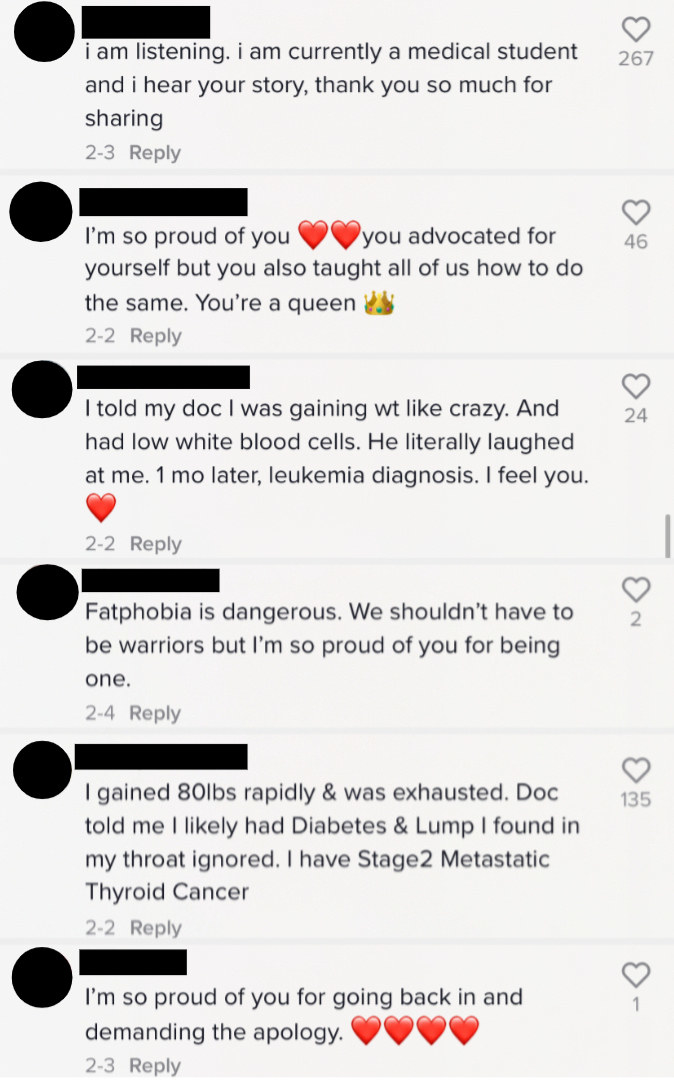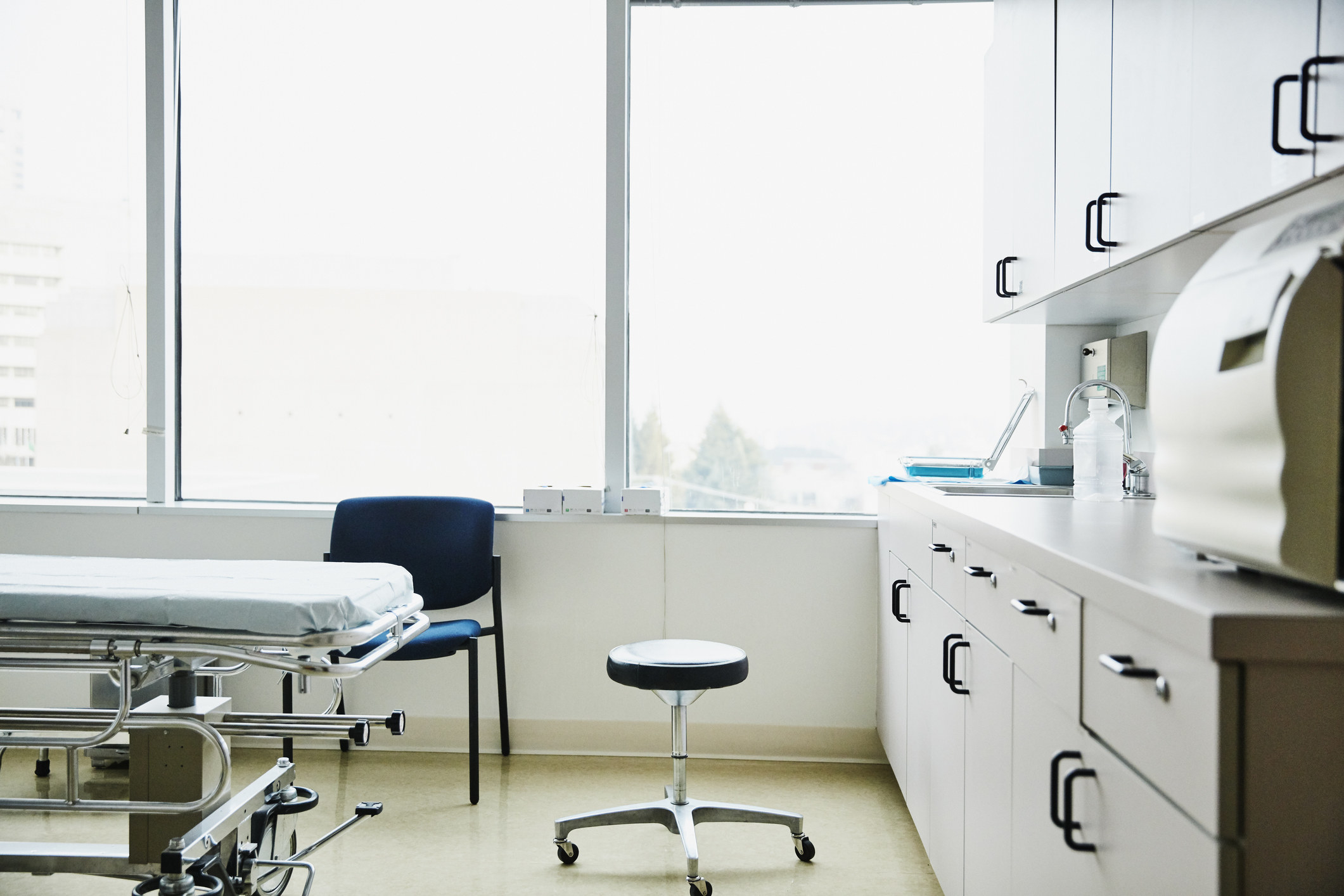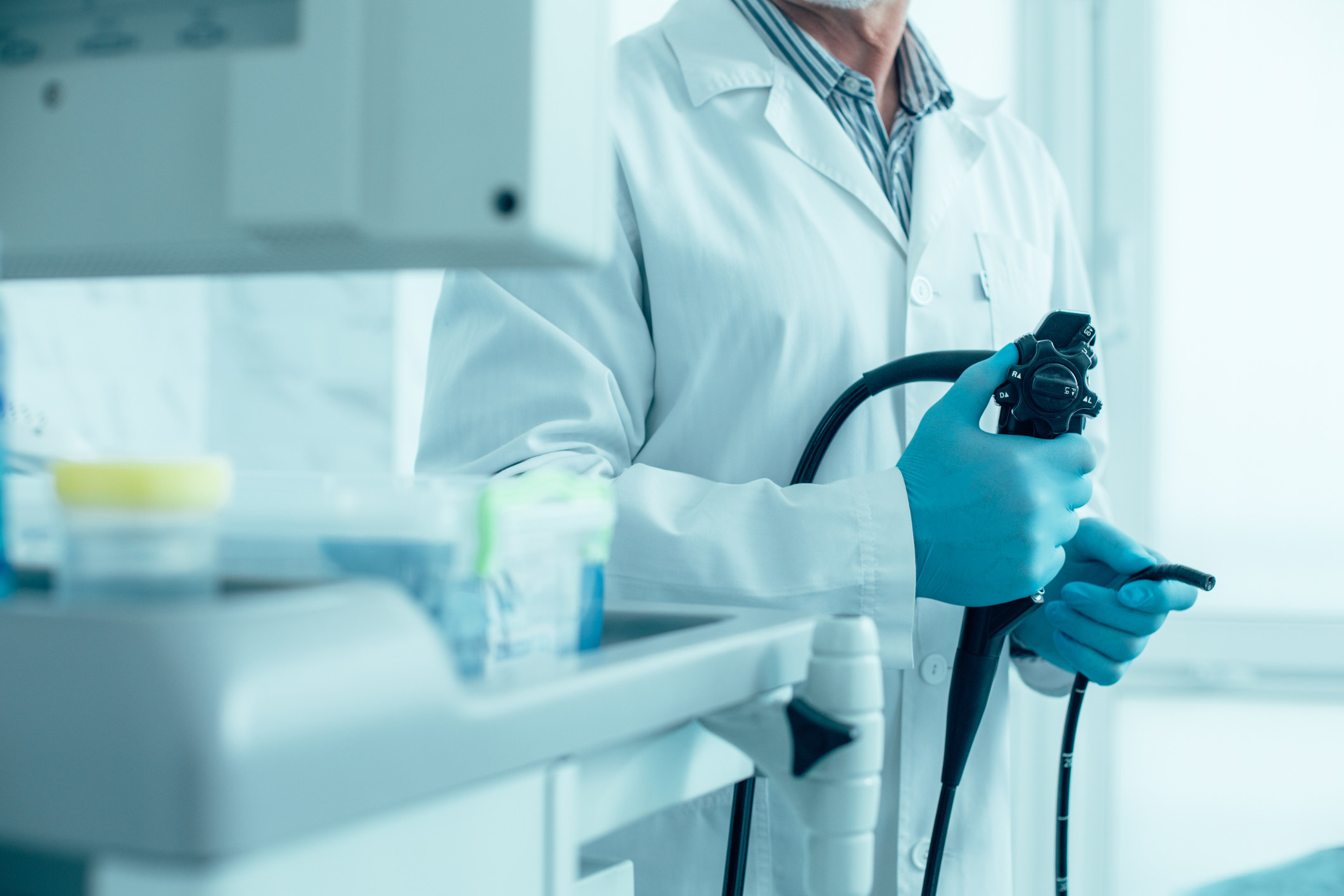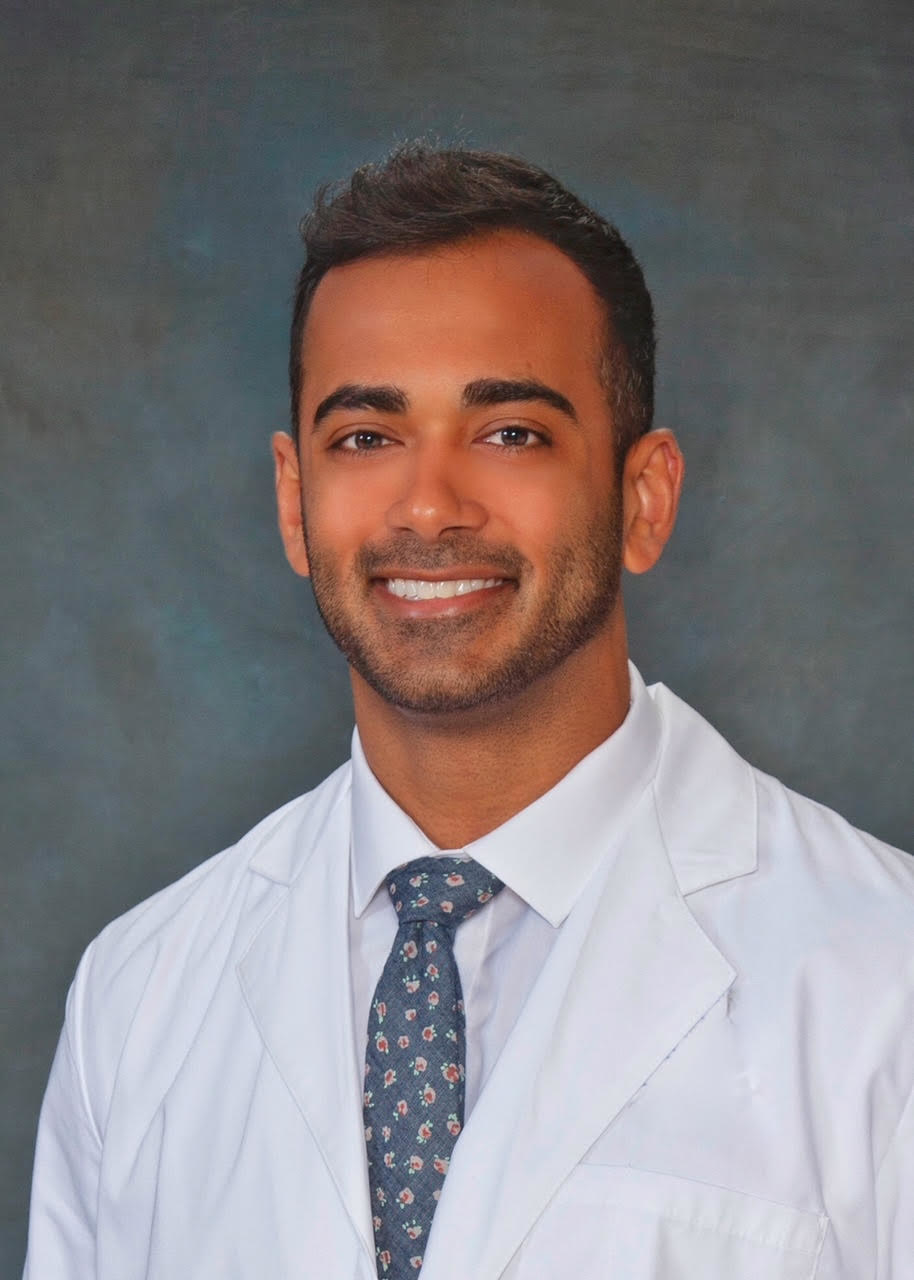Amanda's TikTok begins with a clip from a video she posted a year ago after leaving her doctor's office. In the clip, she tearfully explains that when she'd told her doctor that she experiences pain when eating, the doctor replied, "Maybe that's not such a bad thing."
Once the old clip ends, Amanda begins speaking: "I took that video a year ago today, and in a month from now, it will be the anniversary of when they found my cancer." As it turns out, Amanda says one month after being dismissed by her original doctor, another doctor discovered that Amanda had colon cancer — which was the cause of her pain. She then expresses her disbelief over how she says her previous doctor completely disregarded her "textbook colon cancer symptoms" because of her weight.
Amanda's video has over 181K views, 32K likes, and a comment section full of people sharing love, support, and stories of their own similar experiences.

I spoke with Amanda, who underwent chemotherapy after her diagnosis. While she says she's now in complete remission, Amanda explained that not all of the repercussions of her cancer are physical. "The residual anxiety, trauma, and grief have really been kicking my butt. I would probably say that it’s almost as bad as the chemo was on my body," Amanda told BuzzFeed.
Amanda described the appointment she recounts in her original video, which she says she actually struggled to get in the first place. "I’ve always had GI issues, and they’ve always been ignored. I was getting really sick, dropping weight, not consuming any food, and I was trying to get my insurance to send me to a GI." She was able to book an appointment after purposefully switching medical groups to see a specific gastroenterologist who was able to see her within the shortest amount of time. "I called [my insurance company] in a panic like, 'I am so sick. This has been months of me being sick. Please get me a doctor as soon as possible,'" Amanda said.

However, Amanda says that the gastroenterologist she saw didn't seem especially interested in her previous appointments, or symptoms in general. "I already kind of knew." She said, "You already know when someone doesn’t really care about what you have to say," she elaborated, adding that he didn't plan to run any tests, and interrupted her frequently. He then asked her what she had been eating, and Amanda, who had been experiencing severe abdominal pain when eating, replied, "Nothing." She said the doctor then responded, "Maybe that’s a blessing." When Amanda asked him to reiterate, he said, "Maybe that’s not such a bad thing."
Amanda's second visit didn't fare much better than the first. Instead, she says the doctor told her that she was too "sensitive" and that he hoped her next doctor would be "more sensitive" to her concerns. He also told Amanda that she didn't get his "sense of humor." After leaving his office for the second time, she filmed her original TikTok. "Something inside of me was telling me that this was wrong and what he was doing was inappropriate, but I also felt like it was so common, and it was so difficult to pinpoint why," Amanda explained. However, she shared that the comments on her original TikTok ultimately gave her the validation she should have received from the doctor in the first place, and encouraged her to get answers.
Emboldened by the response to her original TikTok, Amanda said that she began searching for a new doctor. This time, she specifically chose a doctor who was a woman, and she immediately ordered Amanda a colonoscopy. Upon learning that the colonoscopy revealed a tumor, Amanda said, "I was like, 'That makes sense.' I was in so much pain for so long, being ignored."

I spoke with Dr. Sanjay Juneja, a hematologist and medical oncologist — who was not involved in Amanda's case — to learn more about the common symptoms of colon cancer. He explained: "Persistent abdominal pain, early fullness or nausea shortly after eating, decreased appetite chronically, changes in stool caliber or the shape of the stool despite no changes in diet or supplements, along with constipation or in some, cases diarrhea." If a patient recognizes any concerning symptoms, Dr. Juneja recommends that they go see their primary care physician first for a referral. Personally, Dr. Juneja says that he'd also likely recommend next steps like a colonoscopy if the patient is iron deficient, especially "if they do not have a history of [iron deficiency]...This can be one of the earlier signs on lab work and should prompt a colonoscopy."

